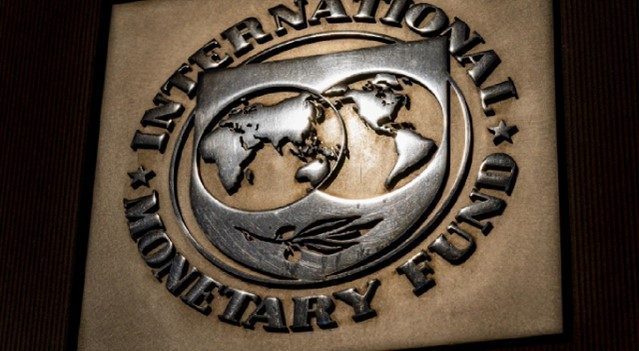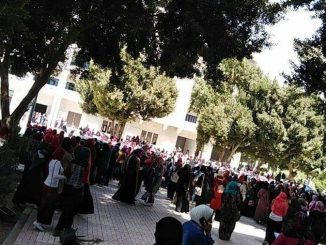
Egypt said it had agreed with the International Monetary Fund (IMF) to merge the fund’s first and second reviews of its economic reform program after the first review was repeatedly delayed amid questions over Egypt’s progress in meeting the IMF’s terms.
The IMF in December approved a $3 billion Extended Fund Facility loan for Egypt, which has been under acute financial pressure since long-standing problems were exposed by economic fallout from the war in Ukraine.
Disbursements under the 46-month program are subject to eight reviews, the first of which, originally scheduled to take place in March, has yet to happen amid reports the IMF was unhappy with Egypt’s progress in fulfilling the terms of the agreement.
“Both the International Monetary Fund and the Egyptian state agreed to merge the first and second reviews at the same time, which is expected to be determined before the end of 2023,” Egypt’s finance ministry said in a detailed budget explanation carried by its website and reported by local media on Saturday.
It added that negotiations with the IMF were proceeding “fruitfully and positively” in accordance with the terms of the program concluded with the Fund.
Egypt vowed to adopt a flexible exchange rate when it reached the loan agreement with the IMF late last year, but the official rate has remained almost unchanged for nearly six months at about 30.93 to the dollar. The pound is traded at about 39 to the dollar on the black market.
In June, Egypt President Abdel Fattah al-Sisi appeared to rule out a further devaluation anytime soon, saying such a move could harm national security and hurt Egyptian citizens.
Can IMF conditionality improve governance?
On 27 October 2022, the International Monetary Fund (IMF) and Egypt reached an agreement on a fourth loan package via the Extended Fund Facility (EFF). It granted the Egyptian government a loan of USD 3 billion. The initially requested amount of USD 12 billion was drastically reduced as both parties could not agree on several conditions, such as the IMF’s call for the government and the army to reduce their footprint in the economy, stated a recent study published on Arab Reform Initiative by Folkert Woudstra.
“However, a more detailed report on the deal that was published on 10 January 2023 confuted the initial impression that the army was once again exempted from IMF reforms. To the surprise of many, Egypt would commit to measures that reduce the army’s economic footprint, such as reducing business advantages to State-owned enterprises (SOEs) that are affiliated with the army. Next to committing to these measures, the government of Egypt’s Al-Sisi recently took some steps that may suggest a slight improvement in the Egyptian human rights situation and resumed meetings with the opposition. For instance, the government lifted the state of emergency in October 2021, which was enforced in April 2017. In those four years, the state of emergency served to accelerate human rights violations as it granted far-reaching powers to security forces and banned public gatherings,” stated the study.
Al-Sisi also initiated a national dialogue with the opposition whose recommendations will be sent to the Sisi to decide whether to adopt or reject them. Finally, the authorities released hundreds of political prisoners in the period before the 2022 UN Climate Change Conference (COP27), but thousands of political prisoners remain in detention.
In the run-up to the COP27, the release of prisoners may have been deployed as a deliberate strategy to mask the extraordinarily high numbers of Egyptian detainees and the new waves of detention. Therefore, critics accused Al-Sisi of greenwashing the country and covering up its poor human rights record. Despite these developments, the lack of substantial improvement calls into question the real intentions of the Egyptian government.
Against this background, the government faces a need to make further concessions to the international community to obtain new tranches of funding from the IMF after the recent deal. Fresh international cash injections seem unavoidable to enable Cairo to address the plummeting exchange rate of its national currency, avert a mounting debt crisis and repair its public finances that took hits from the Covid-19 pandemic and the war in Ukraine. To face these challenges, Egypt recently turned to the IMF once more for a loan under the Extended Fund Facility (EFF) for an amount of about USD 3 billion to maintain its macroeconomic stability.
This commentary explored how the financial clout of the IMF combined with Egypt’s fiscal needs might generate a narrow pathway for bringing about incremental reforms that could improve governance, and remain feasible within the parameters of the country’s authoritarian rule.
To finally address the deeper causes of Egypt’s economic misfortunes, the IMF could adopt a stricter conditionality by demanding stringent anti-corruption measures and limiting the dominant role of the army in the economy.



